Elle // 24 // Europe // university student // tea addict // biggest enemy: procrastination // //main blog: stormcloud146
Don't wanna be here? Send us removal request.
Text
you don’t get good at doing something by not doing it
you get good at doing something by doing it badly and learning how to do it better
60K notes
·
View notes
Photo
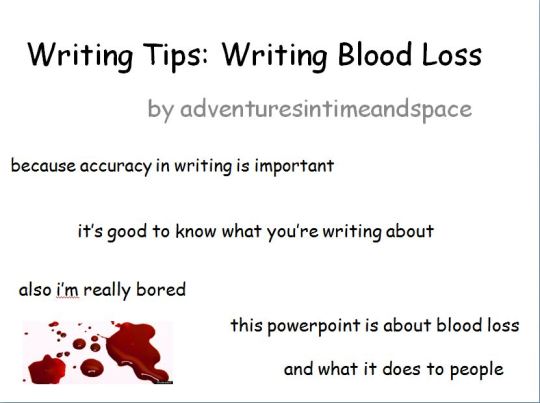
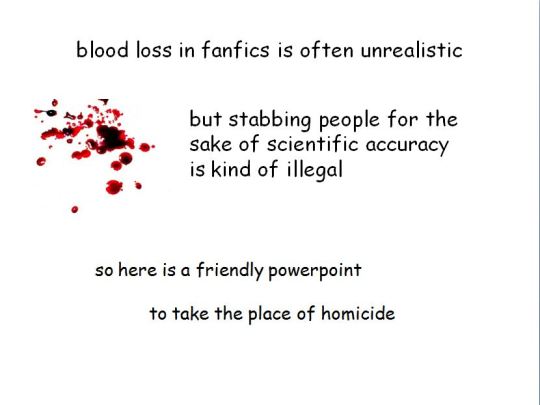


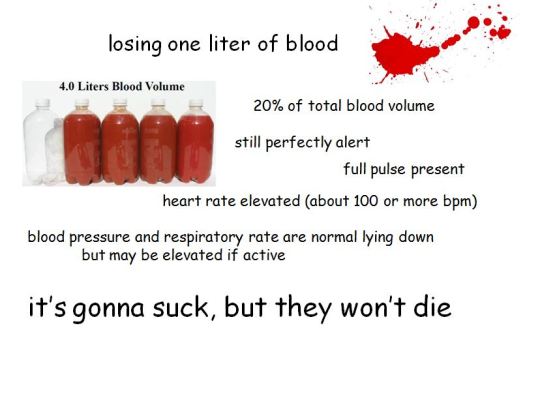
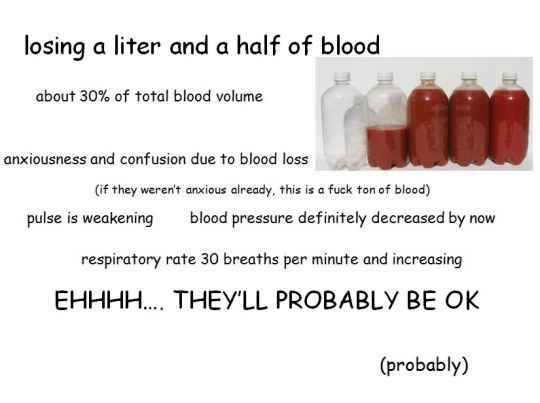
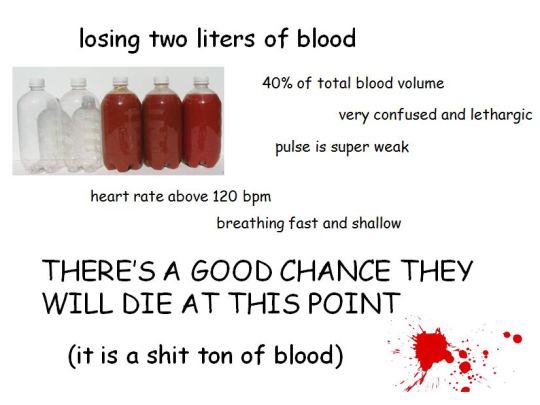
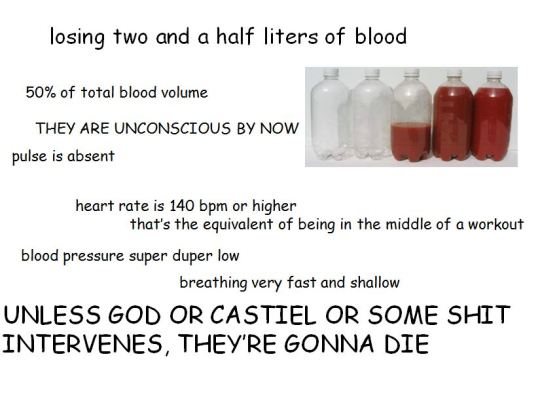
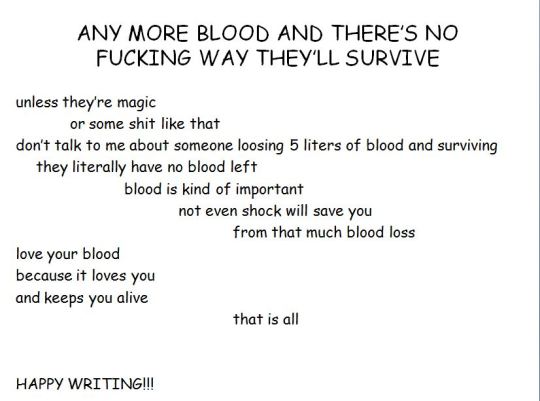
Here are some scientific facts about blood loss for all you psychopaths writers out there.
288K notes
·
View notes
Photo
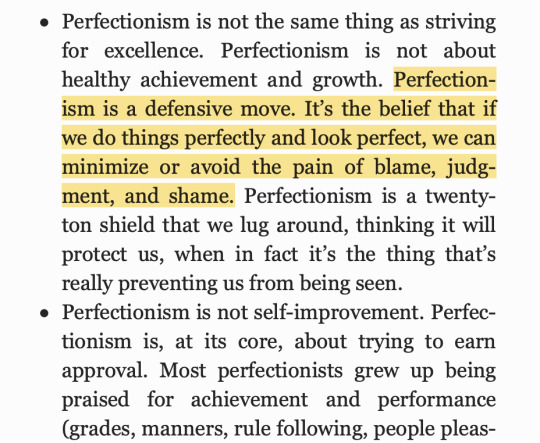
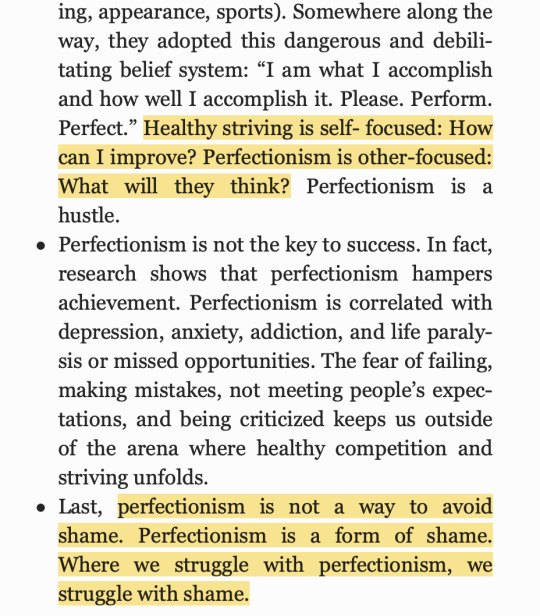
Brené Brown, Daring Greatly
67K notes
·
View notes
Text
adora’s mind seeing catra yelling “dont you get it? i love you, i always have” versus catra in actuality saying it very softly and gently, possibly even whispering it is so.....
catra has been so afraid this whole time of her love for adora and the ways that it could hurt both of them, through adora rejecting her or someone using that love against them, but she’s done with that now. she doesn’t care what anyone even adora might have to say about it, but she’s going to make sure she knows. the way she says it, so softly and so vulnerably, is indicative of her no longer being afraid of being soft and vulnerable.
for adora though? it’s the one thing she’s always wanted, always hoped for, and at the end of the day always fought for. she finds her strength in the love and connections she has with other people, and the core of that has always been driven by catra. so of course when adora is at the end of her rope, ready to put it all on the shelf and give it up..... of COURSE it would feel like a yell to her. a scream. one last final push of strength, one more reason to get back up brush off the dust and just FIGHT, because catra loves her, and that is what adora has been fighting for since the beginning. god.
955 notes
·
View notes
Text
If you’re serious about change, you have to go thru uncomfortable situations & stop trying to dodge the process. It’s the only way to grow.
259K notes
·
View notes
Photo







Mermay 2020 - Hans Christian Andersen’s The Little Mermaid - by Lucas Werneck (Part 2)
10K notes
·
View notes
Photo
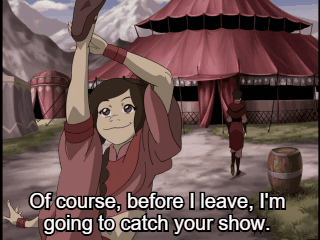
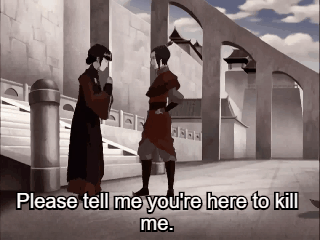







The Buildup for Mai and Ty Lee Turning on Azula
Looking back at the series, Mai and Ty Lee turning on Azula at the Boiling Rock was very well thought out, with several incidents involving all three Dangerous Ladies leading up to that climactic event. In the essay that follows, I’ll look at each key event in chronological order (for the most part), demonstrating how each point foreshadows “The Boiling Rock.”
Keep reading
8K notes
·
View notes
Photo










Mermay 2020 by Rachel Bradley
4K notes
·
View notes
Text
i am once again writing pretentious emails ladened with excuses for why my assignments are a week late
102 notes
·
View notes
Text
There's a fine line between self care and procrastination and I straddle it constantly like the shameless hoe that I am.
80 notes
·
View notes
Text
a note to self








#mistake#lifestyle#aesthetic#tumblr#studyblr#studyblog#studygram#motivation#inspiration#studying#study
3K notes
·
View notes
Text
some things i’ve learned while studying in quarantine
drink more water instead of more coffee.
weekly goals are bullshit. set yourself 3-day goals. you’ll be less laid-back.
don’t just mindlessly stare at words. before you start studying, know your approach to it. have a plan.
summarizing the concept in your own words is the key part of taking notes. don’t just copy things down, convert them into your own way of talking, your own vocabulary, no matter how dumb and unprofessional it sounds.
don’t let the “studyblr aesthetic” fool you. studying doesn’t have to be pretty. summaries and notes can be messy as long as they’re comprehensible. you can always rewrite and reorganize them later. (honestly, you better do. and you better keep them.)
don’t throw away the papers you’ve solved your problems in. staple them to the fucking textbook. you need to see them constantly. cause you’ll need reminders of how far you’ve came, when you’re feeling discouraged.
don’t be an armchair analyst for your issues. if you have an idea then act on it.
remember: the exact point where it becomes difficult, is where your growth begins. take a deep breath, and try to focus on the paragraph in front of you.
get off your high horse and understand that if you’re a zero, you won’t go to 100 in a couple of days. first, you’ll need to reach 30, then from 30 to 60, and then from 60 to 90. nobody is 100 everyday. that happens very rarely.
you need to have fun everyday. you need to have peaceful time every single day. even on exam night. especially on exam night, actually. so make sure you’ve studied enough so you can have some time to yourself.
once you’re on a roll and in need of some challenge to stay on track, start writing down your studying hours. tell yourself you’re not allowed to do less than 80% of what you did yesterday. whatever the hell it was, even just one hour. so if yesterday you really studied for like, say 8 hours, today your goal is to study for at least 6 and a half hours. if you can’t keep up with that, make it 70%, or 60%.
be forgiving of yourself. be kind to yourself. even if you bounced back and lost your streak. start again. as slowly as you did before. take your time. it’s okay, you were there once you can get there again.
41K notes
·
View notes
Text
Things to Consider when Creating a Magic System
What are the drawbacks of using magic? Does it have mental, physical, and/or emotional consequences for the user?
What tools are needed to harness magic? Wands? Spells? Magical artifacts?
How do people learn magic? Instinct? In school? From family members?
Can everyone use magic or are only certain people capable of using it?
Is the capability to use magic hereditary? What about different ways of using magic (transformation powers, teleportation, etc.)?
What is impossible for magic to do?
How long does it take to master different magical skills?
Can creatures other than humans learn magic? Are different creatures better at using different kinds of magic?
Does it require spells to be spoken, written, or thought?
Is it possible for someone to lose their magical abilities?
How do characters’ emotions affect their ability to use magic? Do their emotions affect the magic’s intensity or controllability?
How does the strength of a person’s magical abilities change as they age?
Can people normally perform any kind of magic or can they only perform things that fall under their specialty? Are their exceptions?
What rules restrict magic use in society?
How do people’s magical abilities impact their career prospects?
What kinds of magic are the most feared or seen as the most powerful? Which are seen as mere jokes?
How do people use magic to help with everyday tasks?
Can magical energy be stored for later use?
What objects or other factors can amplify someone’s magical powers?
When do magical abilities initially manifest? From birth? At a certain age? Under certain conditions?
What is the first spell a character is likely to learn?
What happens if a spell is performed incorrectly? Nothing at all? A weaker version of the intended results? Pain?
Can different spell casting methods be used to obtain the same result? What are their advantages and disadvantages?
25K notes
·
View notes
Text
How to write about Grief:
There is no right or wrong way to experience grief. Just as there is no right or wrong way to write it. Everyone is different, each set of circumstances are different.
The point of this post is to show you how different people react in different ways, and give points on how you might write that, depending on your character and story.
Reactions to Grief
Numbness: Your character may go into auto-pilot and be unable to process the events that have unfolded.
Anger: This can be aimed at other people, at a Higher Being, or at nothing in particular.
Unsteady: Your characters may be unsteady. For example, unable to stop their voice from shaking or they may find it difficult to stand.
Focusing on Others: Your character may disregard their own feelings because they are so overwhelmed and instead concentrate on someone else’s well-being.
Seek out routines: Amid upheavals, your character may seek comfort in tasks that are familiar and “safe,” such as working, cleaning, making their bed, making absurd amounts of tea or taking a morning walk.
Pretending that Everything Is Okay: Grief is viewed as an emotion that should cease or be concealed once the funeral is over. So people mention the news in an offhand comment, then talk and laugh as if all is right with the world.
Denial: Some people deny the reality of death and convince themselves that the news is a joke or can’t be true.
Reactions from people surrounding your character:
People may avoid your character as they do not know what to say or simply can’t find the right words.
Some may even go as far as to cross the street when they notice your character approaching.
Even people that the character has known for years may act strange or standoff-ish, simply because they don’t know what to say.
On the other side of that, some people may be overly helpful and friendly.
It is not uncommon for estranged friends, family or others to suddenly reappear in a person’s life after they have experienced grief.
Either because those people want to offer their support and love or because they’re being nosy and they want to be kept up to date on the “drama”.
Most people will move on from the event fairly quickly if they weren’t emotionally invested.
Some people may even get annoyed at your character for still being upset weeks or months later.
When talking about the person they have lost:
Your character may recall a memory or tell a story about their loved one, these are possible reactions. (I have encountered all of them.)
Your character may being to cry or get upset at the thought of the person they have lost.
The person they are talking to may become awkward and avert eye contact when your character brings up the person they have lost.
Others may ask or tell your character to stop talking about the person they have lost. They may roll their eyes, cough awkwardly, or cut off your character mid sentences so that they can change the subject.
Some people may ask inappropriate questions about the circumstances in which the character’s loved one passed away. Depending on the personality of your character then may react differently.
Other things to note:
Grief is not constrained by time.
One of the main problems with grief in fiction is that a character is typically heartbroken for a couple scenes and then happy again. But grief does not evaporate because the world needs saving.
Allow your character to wrestle with their grief.
Your character may feel guilty. Your character may feel a twinge of guilt when they laugh or have a good time with someone else; when they do something to remind them that they’re alive, and their loved one isn’t.
Grief is a game changer. A previously outgoing character may withdraw and isolate themselves. Some people may take grief and/or bereavement as a sign that life is too short; they may make big decisions in an attempt to make themselves feel better and grow away from their pain.
Sometimes grief can help you find your purpose.
At first grief can be all consuming. It hurts and you can’t really control it. It may seem unrelenting. Eventually the grief will become easier to deal with, your character may find the days to be better, but that doesn’t mean that when the grief hits it doesn’t hurt any less.
For most people, grief never really goes away. “Sometimes you have to accept the fact that certain things will never go back to how they used to be.”
It is rare that a person will ever give a long speech about their feelings, a lot of people struggle to even find the words. But that’s okay. Show the reader how your character feels, rather than just telling them.
Don’t pause the plot to deal with the aspect of grief. This could overwhelm the readers and drag the pace down. In reality, life doesn’t just stop due to grief, the world keeps spinning and things still need to be done. Use the character’s grief as a backdrop for the story’s events.
Yes, grief affects the character’s day-to-day life, goals, and relationships. But it shouldn’t drive readers away or stagnate the story. Instead, should engage readers and produce empathy that keeps them turning pages.
You don’t need to tell your readers that everything will be fine. You don’t need to provide all of the answers.
“Skirting grief and treating it lightly is easy. But by realistically portraying it through a variety of responses and its lasting effects on the character’s life, readers will form a connection with your characters.“
26K notes
·
View notes
Photo

✨Mulan✨ 🐉
Based on the Heaven Gaia dress from, 2020 SS PARIS FASHION SHOW Swipe to see more, #mulan #Famulan #disney mFashion #highcosture #model #warrior #disneyprincess #princess #liveaction #Dragon #chineseDragon #China #chinese #art #Draw #digitalart #wacom https://www.instagram.com/p/B-3vA6Vl-pB/?igshid=18d51drm944uf
279 notes
·
View notes
Text
things to do alone
read that novel you’ve always wanted to start reading
watch a movie, and i don’t mean watch a movie on netflix, actually go to the cinema on your own. thank me later
start a blog
take a walk
browse bookstores, even if you’re not going to buy anything (if you’ll be able to resist the temptation of buying a book). just surround yourself with literature
brew yourself some tea or coffee, whichever you prefer
listen to classical music and absorb it, don’t do anything else, just sit there and listen to it
pick up a magazine, ditch online magazines for a while, go for the print
go to a museum
explore cooking or baking
watch the sunset
take a long, warm bath
11K notes
·
View notes
